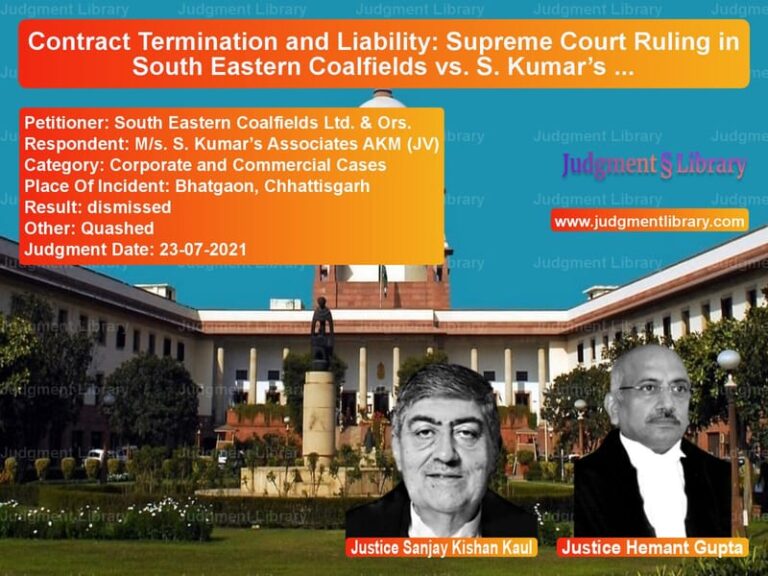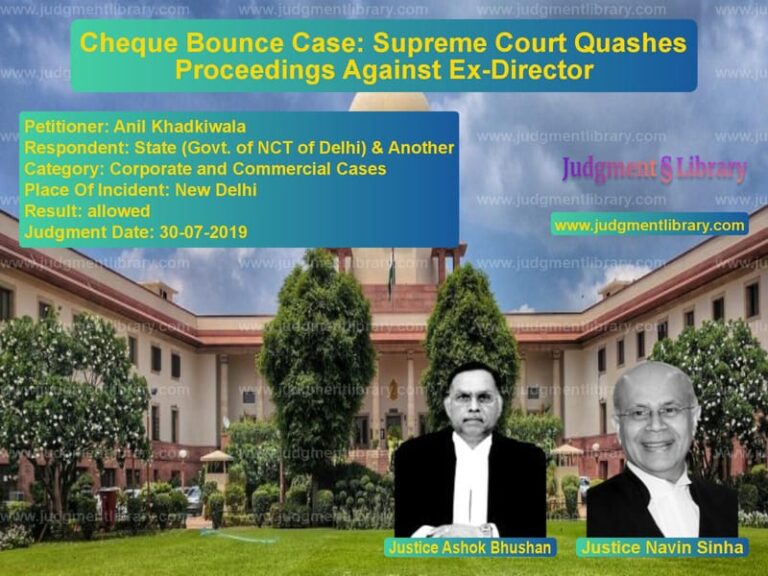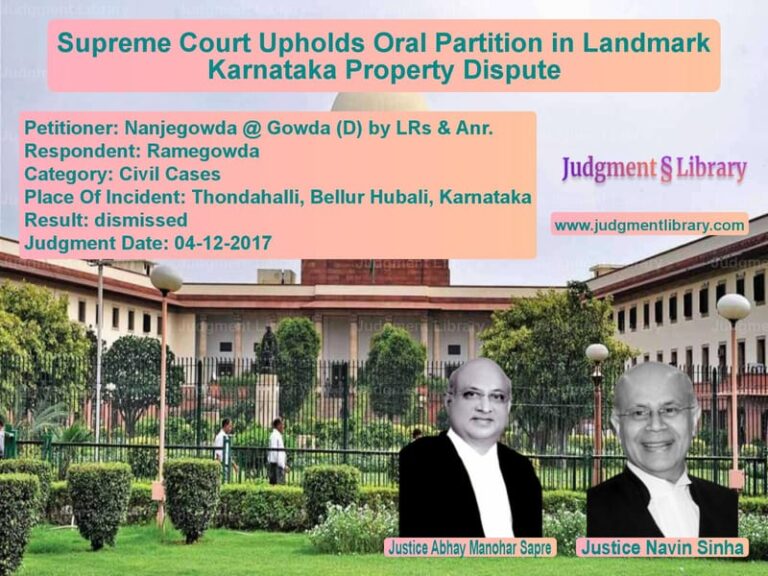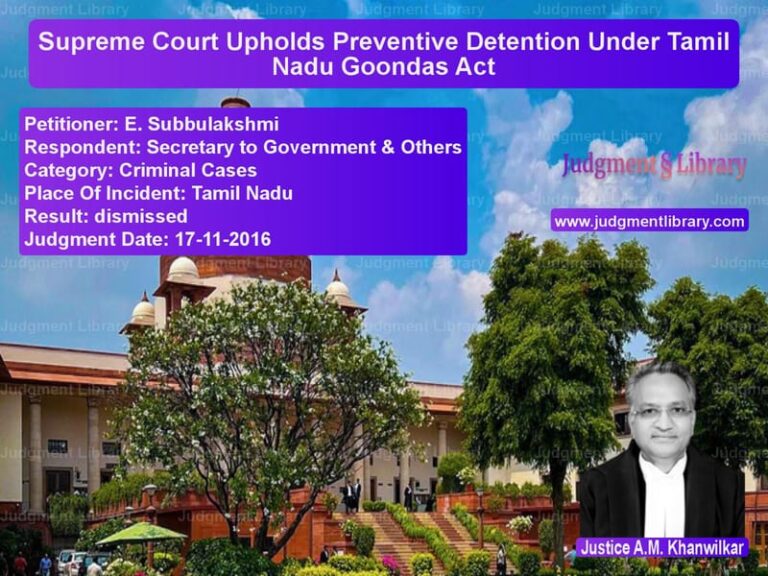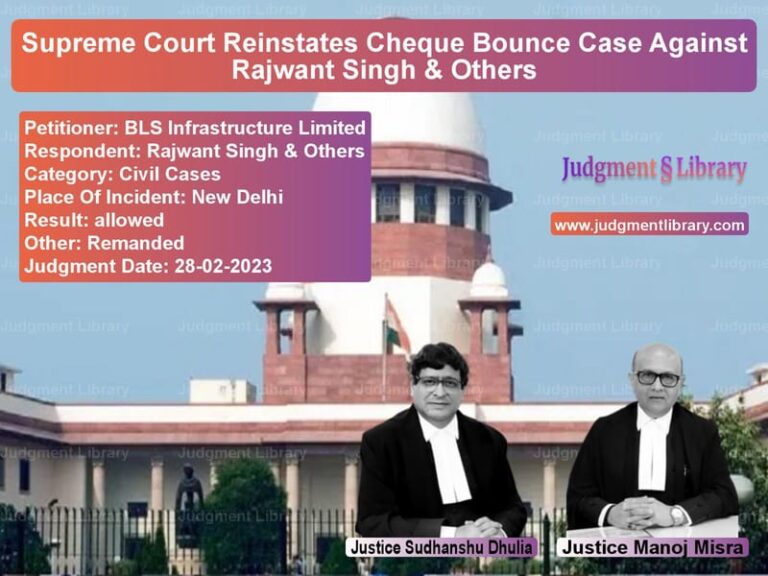CBI vs. P.S. Jayaprakash & Others: Supreme Court’s Verdict on Anticipatory Bail in ISRO Espionage Case
The case before the Supreme Court involved a crucial legal battle between the Central Bureau of Investigation (CBI) and the respondents, including P.S. Jayaprakash and Dr. Siby Mathews, who were granted anticipatory bail by the Kerala High Court in connection with the ISRO espionage case of 1994. The Supreme Court’s ruling on December 2, 2022, overturned the High Court’s decision and remanded the matter for fresh consideration.
The CBI had challenged the Kerala High Court’s order granting anticipatory bail to the accused, who were former officials of the Kerala Police and the Intelligence Bureau (IB). These officials were accused of fabricating false espionage charges against ISRO scientist S. Nambi Narayanan and others, which led to their wrongful arrest in 1994. The CBI argued that the High Court had failed to consider the gravity of the allegations and the individual roles played by the accused.
Background of the Case
The origins of the case trace back to 1994 when an espionage scandal rocked the Indian Space Research Organisation (ISRO). The Kerala Police and IB officials arrested S. Nambi Narayanan and others on allegations of leaking sensitive defense-related information to foreign agents. However, after an investigation by the CBI, the allegations were found to be false, and the case was closed in 1996.
In 2018, the Supreme Court directed the Kerala government to compensate Nambi Narayanan with Rs. 50 lakh and appointed a committee led by former Supreme Court judge D.K. Jain to examine the actions of the officials involved in the wrongful prosecution. Based on the committee’s recommendations, the CBI registered a fresh FIR against 18 officials, including the respondents, under various sections of the Indian Penal Code, including criminal conspiracy, wrongful confinement, and fabrication of evidence.
Legal Arguments Presented
CBI’s Arguments
The CBI, represented by Additional Solicitor General S.V. Raju, argued that the High Court had erred in granting anticipatory bail without considering the gravity of the charges against the accused. The CBI contended that:
- The High Court had overlooked the specific roles played by the accused in fabricating evidence and wrongfully arresting innocent individuals.
- The committee’s findings had recommended legal action against the accused, and the present FIR was filed based on these findings.
- The anticipatory bail order was passed without appreciating the impact of the wrongful prosecution on national security.
Respondents’ Arguments
Senior Advocate Kapil Sibal, representing the respondents, argued that:
- The FIR was registered after an unreasonable delay of over two decades.
- The case had already been examined by multiple agencies, and further prosecution was unjustified.
- The respondents had cooperated with the investigation, and custodial interrogation was unnecessary.
Supreme Court’s Observations
The Supreme Court, while examining the High Court’s decision, observed:
- “The High Court has neither considered the allegations against the respective accused nor the role played by them nor the position held by them at the time of registering the FIR in the year 1994 nor the role played by them during the investigation of Crime No. 225/1994/246/1994.”
- “The High Court has also not taken note of the recommendations made by the Committee headed by Hon’ble Mr. Justice D.K. Jain, a former Judge of this Court.”
- “The High Court has failed to appreciate that the present FIR was pursuant to the observations and the directions issued by this Court.”
Judgment and Conclusion
The Supreme Court quashed the High Court’s order granting anticipatory bail and remanded the matter for fresh consideration. The Court directed the High Court to decide on the anticipatory bail applications within four weeks, considering all relevant aspects, including the committee’s recommendations.
Until the High Court delivers its final decision, the Supreme Court provided interim relief to the respondents, stating that they shall not be arrested for five weeks, provided they cooperate with the investigation.
This judgment underscores the importance of a thorough judicial review in cases involving serious allegations, ensuring that due process is followed while balancing the rights of the accused and the need for justice.
Petitioner Name: Central Bureau of Investigation.Respondent Name: P.S. Jayaprakash, Dr. Siby Mathews.Judgment By: Justice M.R. Shah, Justice C.T. Ravikumar.Place Of Incident: Kerala.Judgment Date: 02-12-2022.
Don’t miss out on the full details! Download the complete judgment in PDF format below and gain valuable insights instantly!
Download Judgment: central-bureau-of-in-vs-p.s.-jayaprakash,-dr-supreme-court-of-india-judgment-dated-02-12-2022.pdf
Directly Download Judgment: Directly download this Judgment
See all petitions in Bail and Anticipatory Bail
See all petitions in Custodial Deaths and Police Misconduct
See all petitions in Judgment by Mukeshkumar Rasikbhai Shah
See all petitions in Judgment by C.T. Ravikumar
See all petitions in allowed
See all petitions in Quashed
See all petitions in supreme court of India judgments December 2022
See all petitions in 2022 judgments
See all posts in Criminal Cases Category
See all allowed petitions in Criminal Cases Category
See all Dismissed petitions in Criminal Cases Category
See all partially allowed petitions in Criminal Cases Category


